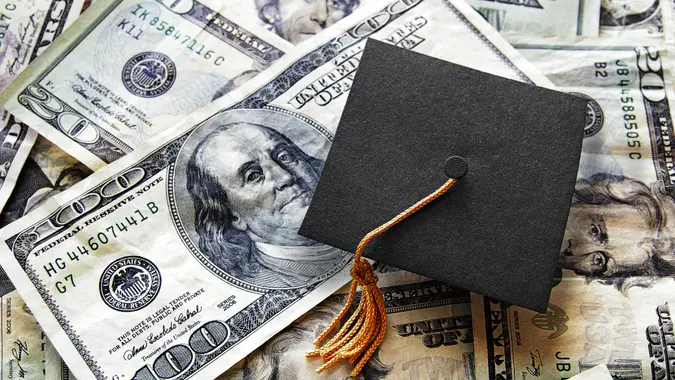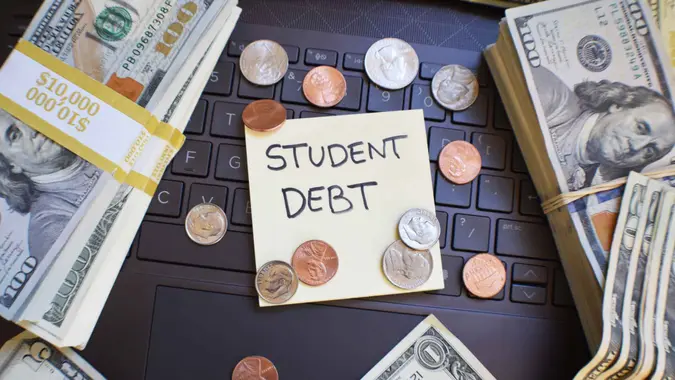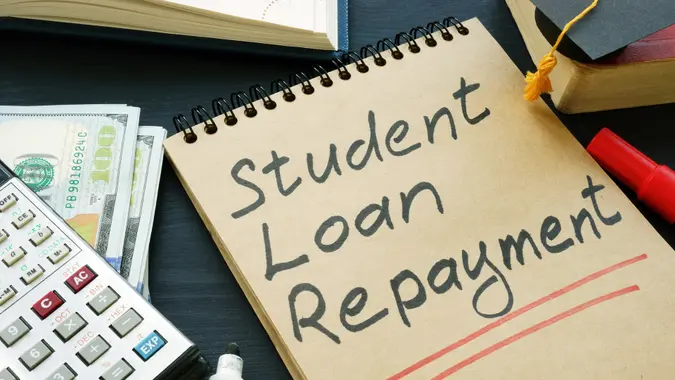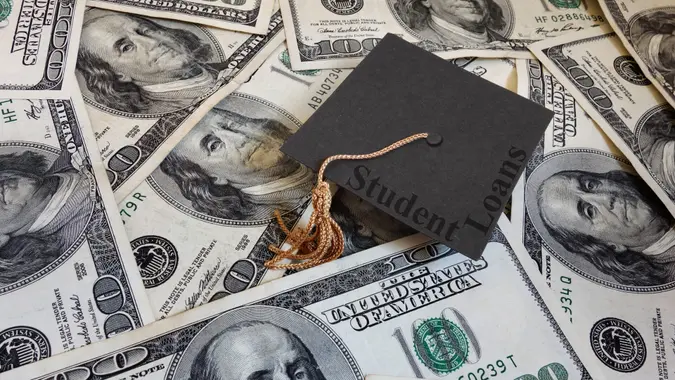Over 1 in 5 Student Loan Borrowers Are ‘Seriously Delinquent’ — 4 Things You Can Do

Commitment to Our Readers
GOBankingRates' editorial team is committed to bringing you unbiased reviews and information. We use data-driven methodologies to evaluate financial products and services - our reviews and ratings are not influenced by advertisers. You can read more about our editorial guidelines and our products and services review methodology.

20 Years
Helping You Live Richer

Reviewed
by Experts

Trusted by
Millions of Readers
On May 5, the U.S. Department of Education (DOE) began collections on defaulted federal student loans as part of a broader effort to eliminate loan forgiveness programs initiated during the Biden administration.
More than one-fifth (20.5%) of federal student loan borrowers who owe debt are 90 days or more past due — qualifying them as “seriously delinquent,” according to a new analysis of DOE data conducted by TransUnion. That figure is up from 11.5% in February 2020, during the early stages of the COVID-19 pandemic and before a subsequent student loan pause that was put into place during President Donald Trump’s first term.
If you are way behind on your student loan payments as collections resume, here are four things you can do to get current again.
Cut Unnecessary Costs
Any loan repayment strategy should include eliminating unnecessary expenses to free up more money for debt payments. Here are three costs you can cut right now:
- Home services: This might include getting rid of cleaning or yard services you currently pay for, along with taking a DIY approach to repairs and maintenance rather than hiring a professional handyman or repair service.
- Eating out: If you regularly spend money on restaurant visits or takeout, you can save $100 or more by making your own meals at home.
- Unused subscriptions: Nearly all U.S. households have some kind of streaming service subscription along with cable, internet, media and other subscriptions. Getting rid of the subscriptions you don’t need can free up a lot of money to repay student loan debt.
Consolidate Your Loans
If you’re juggling several different student loans from multiple lenders, then you might find yourself missing payments just because you can’t keep track of them all. Consolidating those loans into a single loan will simplify the process considerably. In many cases you can also lower your monthly payments.
Refinance To a Lower Interest Rate
If you have good credit and a steady income, you can reduce your student loan payment by refinancing into a loan with a lower interest rate. A lower interest rate also ensures that more of your monthly payment goes toward paying down the principle, which helps you get out of debt faster.
Find New Income Sources
Increasing your income could be the best way to keep up with student loan repayments because you have more money to apply to your debt. Asking for a raise is one way to increase your income. If that’s not an option, consider a side gig. Here are a few of the higher paying options, according to a GOBankingRates analysis:
- Consultant: Average salary of $100 per hour
- Software Developer: $54 per hour
- Project Manager: $49 per hour
- WordPress Developer: $45 per hour
- Online Reseller: $40 per hour
Sources
- U.S. Department of Education, “U.S. Department of Education to Begin Federal Student Loan Collections, Other Actions to Help Borrowers Get Back into Repayment.”
- TransUnion, “As Federal Collections Activity Resumes, More Than One in Five Federal Student Loan Borrowers With a Payment Due are Seriously Delinquent.”
 Written by
Written by  Edited by
Edited by 

























